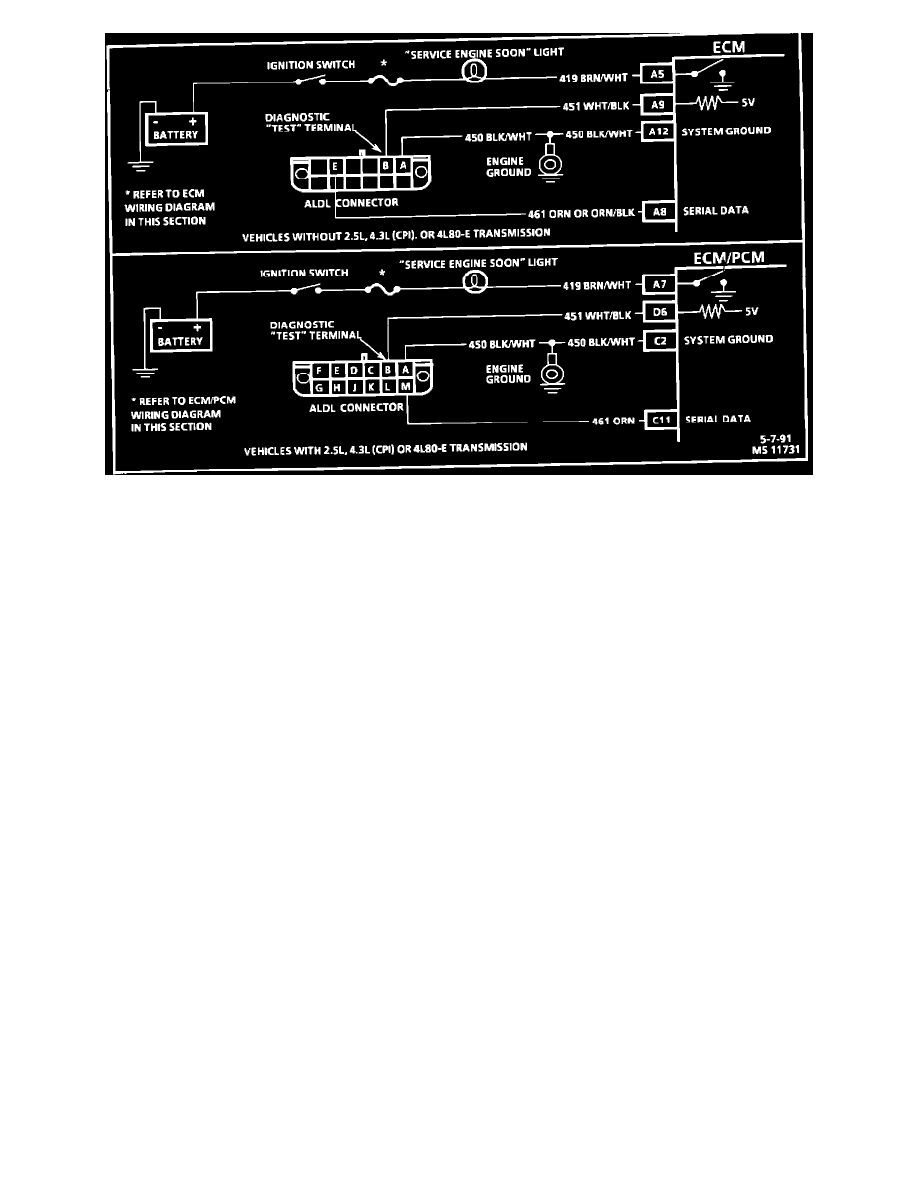S10/T10 P/U 2WD V6-262 4.3L VIN W CPI (1992)

Diagnostic Circuit
Circuit Description
The diagnostic circuit check is an organized approach to identifying a problem created by an electronic engine control system malfunction. It must
be the starting point for any driveability complaint diagnosis, because it directs the service technician to the next logical step in diagnosing the
complaint. Understanding the chart and using it correctly will reduce diagnostic time and prevent the unnecessary replacement of good parts.
Test Description
Number(s) below refer to circled number(s) on the diagnostic chart.
1. This step is a check for the proper operation of the "Service Engine Soon" light. The "SES" light should be "ON" steady.
2. No "SES" light at this point indicates that there is a problem with the "SES" light circuit or the control module control of that circuit.
3. This test checks the ability of the control module to control the "SES" light. With the diagnostic terminal grounded, the "SES" light should
flash a Code 12 three times, followed by any trouble code stored in memory. A PROM error may result in the inability to flash Code 12.
4. Most of the diagnostic charts use a Tech 1 to aid diagnosis, therefore, serial data must be available. If a PROM error is present, the control
module may have been able to flash Code 12 or 51, but not transmit serial data.
5. Although the control module is powered up, a "Cranks But Will Not Run" symptom could exist because of an control module or system
problem.
6. This step will isolate if the customer complaint is a "SES" light or a driveability problem with no "SES" light. Refer to Computers and
Control Systems for a list of valid codes. An invalid code may be the result of a faulty "Scan" tool, PROM or control module. See: Powertrain
Management/Computers and Control Systems
7. Comparison of actual control system data with the typical valves is a quick check to determine if any parameter is not within limits. Keep in
mind that a base engine problem (i.e., advanced cam timing) may substantially alter sensor values.
8. If the actual data is not within the typical values established, refer to Computers and Control Systems. See: Powertrain
Management/Computers and Control Systems
